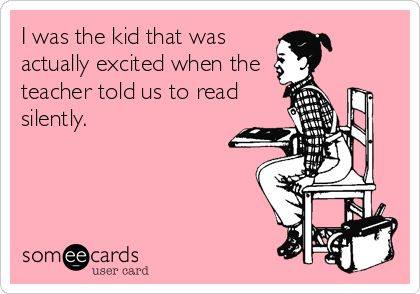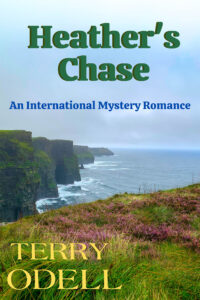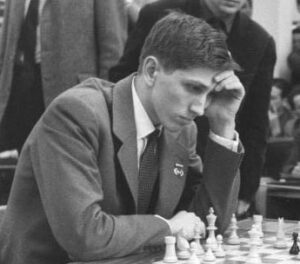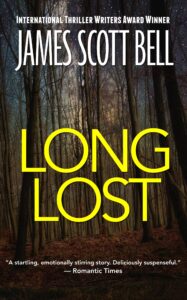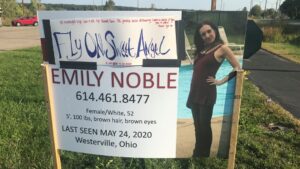 Back in 2017, Jim wrote a terrific post with tips for success in traditional or independent publishing. One of his top tips for all authors is to build an email list.
Back in 2017, Jim wrote a terrific post with tips for success in traditional or independent publishing. One of his top tips for all authors is to build an email list.
Did you follow that advice? If you didn’t, heed Debbie’s warning on how NOT to get started. Even if you’re working on your first novel, you should be actively building your list. I’ll let David Gaughran explain why an email list is the most powerful tool at our disposal.
I’m sure all of you know the power of having thousands of committed readers signed up to your mailing list, allowing you to send each new release into the charts. Even if you’re not there yet personally, this should be something you are aiming for. Every single author should have a mailing list and be seeking to actively grow it.
Now that we know why an email list is so important, how do we go about it?
SUMO
To build an email list, we need a way to collect emails on our website/blog. SUMO is the #1 email capture tool. And it’s free. As of this writing, 886,114 sites use SUMO.
We’ve noticed lots of people struggle to collect emails because the tools just aren’t available or are too expensive. So we thought, why not make our tools available for you?
Our goal, plain and simple, is to help you grow your website.
— SUMO mission statement
Create a scroll bar, pop-up, smart bar, Welcome Mat, or static form to trigger visitors to subscribe to your list. If you offer a free book as an incentive (called a reader magnet), be sure to mention it in your form. No coding required. Takes less than a minute to design a form.
I’ve used SUMO for years with excellent results. I started with a smart bar that hung at the top of the website. I can’t remember why I switched to a popup. There’s no question popups are effective. They’re also annoying as all heck. So, I switched back to the smart bar. A Welcome Mat covers the entire page. The visitor must interact with the form to read the article underneath. They’re effective, but I’ve passed on articles because of them. Do what works best for you.
Pro Tip: Rather than offering the same reader magnet for years, swap it for a new freebie from time to time. Using the same one can become white noise after a while.
A Word About the “F” Word: Free
 Being an author requires a long-term game plan. There is no get-rich-quick scheme. For most of us, one book won’t produce enough income to survive. Thus, we need a strategic approach to building our brand. The #1 way to do that is to grow our email list, and a free ebook campaign can accomplish that goal.
Being an author requires a long-term game plan. There is no get-rich-quick scheme. For most of us, one book won’t produce enough income to survive. Thus, we need a strategic approach to building our brand. The #1 way to do that is to grow our email list, and a free ebook campaign can accomplish that goal.
Many authors put their books into Kindle Unlimited. Which is fine, in theory, but it won’t grow your email list. Amazon won’t tell you who downloaded your book or how to contact them. Sure, you might gain visibility, but wouldn’t you rather form a long-lasting relationship with a fan who can’t wait for your next book? There’s only one way to meet that goal: grow your email list.
If you’re still not convinced, let me ask you this. How many $5 ebooks have you bought from an author you’ve never heard of without a recommendation from someone you trust? Not many, I suspect. Now, what if the book was free? You’d be more apt to take the chance, right? Of course you would.
Some of you may be thinking, offer my book baby for free? Gasp! Believe me, I get it. I know how much of your heart and soul you’ve poured into that book, but we need to shed the emotional attachment to move forward. View each book as a steppingstone leveraged for future sales. By sacrificing short-term gains, we set up long-term rewards. Capeesh? Super. Moving on…
Book Funnel
BookFunnel isn’t only a platform to send ARCs, though I do love that aspect. They automatically add a watermark to Advance Reader Copies to help prevent piracy.
Whether it’s delivering your reader magnet, sending out advanced copies of your book, handing out ebooks at a conference, or fulfilling your digital sales to readers, BookFunnel does it all. Just like you, we’re in the business of making readers happy. Let us help you build your author career, no matter where you are in your journey.
All true. You do need to pay-to-play, but they offer affordable plans. The New Author Plan is $20/yearly. If you only have 1-5 books, the New Author Plan might be enough to get started, but you won’t be able to collect email addresses unless you join a group promo. Even then, the starter plan has limitations. So, if you’re hoping to explode your email list, my advice would be to upgrade. The benefits far outweigh the cost.
Mid-List Author costs $100/yearly or $10/monthly (if the yearly plan is unaffordable right now, choose the monthly plan; you can always change it later). The premiere plan is Bestseller for $250/yearly. The plan titles are a marketing ploy to shame you into upgrading. That said, there are a few key differences.
- Mid-List allows 5K downloads per month; Bestseller allows unlimited downloads.
- Mid-List allows 2 pen names; Bestseller allows 3 pen names.
- Mid-List doesn’t include Priority Support, Bestseller does.
There’s one other difference worth mentioning. Mid-List has no email integration. Meaning, after a promo they’ll send a .csv file for you to upload to your list. Email integration uploads the names/addresses automatically. You can add email integration to Mid-List for $50/yearly, if you’d like. Or stick with the original plan and upload the .csv file yourself. Whatever works best for you.
Bestseller comes with 3 email integrations. Meaning, if you separate your email list into segments or groups, you can integrate a specific list for each BookFunnel promotion.
BookFunnel Landing Pages
You’ll need to do some work to setup your dashboard, but it’s a painless process. Add books and create beautiful landing pages in minutes. No coding or tech skills required. A landing page is where we send readers to download our freebie.
We have various options when creating landing pages. To grow the email list, check the box that ensures readers must give a valid email address to download the book. BookFunnel verifies each address before granting access.
BookFunnel Promotions
 BookFunnel membership comes with free promotions. Hosts offer several different promo opportunities.
BookFunnel membership comes with free promotions. Hosts offer several different promo opportunities.
To grow the email list, scroll through active promotions in your dashboard and search for Newsletter Builder promos.
Check the requirements for each promo before joining. Some require a minimum number of subscribers in your email list (usually 1K).
Next, subscribe for updates in your genre. Every time an author sets up a new promotion, you’ll be notified via email. Spots fill up quickly, so don’t delay. Or host and run your own promotion and invite other authors to collaborate.
Pro Tip: When the promo goes live, share your personal tracking link in your newsletter, on social media, and your website. BookFunnel tracks your shares. It’s how you build a good reputation for future promos.
BookSweeps
 If you like BookFunnel, you will love BookSweeps.
If you like BookFunnel, you will love BookSweeps.
A premiere membership costs $50/yearly, but it discounts future promo opportunities, promotions that add hundreds of voracious readers to your email list. Not freebie seekers, either. These are book buying readers. Freebie seekers join email lists to get the reader magnet, then immediately unsubscribe.
Even with book buying readers, it’s normal for a few to unsubscribe when you send your first email. This happens for various reasons. Don’t take it personally. Think of it as a good thing. Once you hit a certain number (1K-2K email addresses, depending on email provider), sending newsletters is no longer free. Why pay for a reader who has no interest in your work?
Add a Pen Name
A premiere membership allows three different pen names. If you don’t have an alternate author name, create book specific pen names. For example: I created Sue Coletta for my Mayhem Series and another Sue Coletta for my Grafton County Series. Why? Because my two series have different character types, tropes, settings, etc., all of which we can distinguish under separate Pen Names.
Create a Reader Magnet
Generate email subscribers by adding an ebook to the BookSweeps directory, where readers can download the book in exchange for their email. When we create a reader magnet in BookSweeps, we can link to the next book in the series (for sale), add testimonials, and add sub-genres and tropes. It’s an excellent marketing tool.
BookSweeps Promotions
You do have to pay-to-play, but BookSweeps offers discounts once you’ve run a promotion or two. A $50 promo becomes $25 – $35, depending on the promotion.
The best part about BookSweeps promotions is they do all the work for you. All. The. Work.
- 5 days before the promotion they send you the group promo images for FB and Twitter; they even create a shareable image for your individual book.
- On promo day, they send you a reminder email with links to the shareable images.
- During the promo, they remind you when the promo will end.
- After the promo, they send you an email on what to expect next.
- 5-10 days after the promo, they send you the spreadsheet with the email address, a separate spreadsheet for the winner and runner-up. That email also contains links on how to upload the list to your email provider, tips for writing a welcome letter, and other valuable information about nurturing your email list.
Pro Tip: When running a promotion on BookFunnel, Facebook, Twitter, or your website, add a Sweep in the BookSweeps giveaway directory to increase your reach. Free traffic!
Writers: If you follow this advice, your email list will explode with new subscribers.
Readers: If you join BookFunnel or BookSweeps (both free for readers), your e-reader will explode with free books. Win-win!
Over to you, TKZers. What’s your #1 tip to grow your email list? Please share your experience.

 Let’s stroll down memory lane.
Let’s stroll down memory lane.


